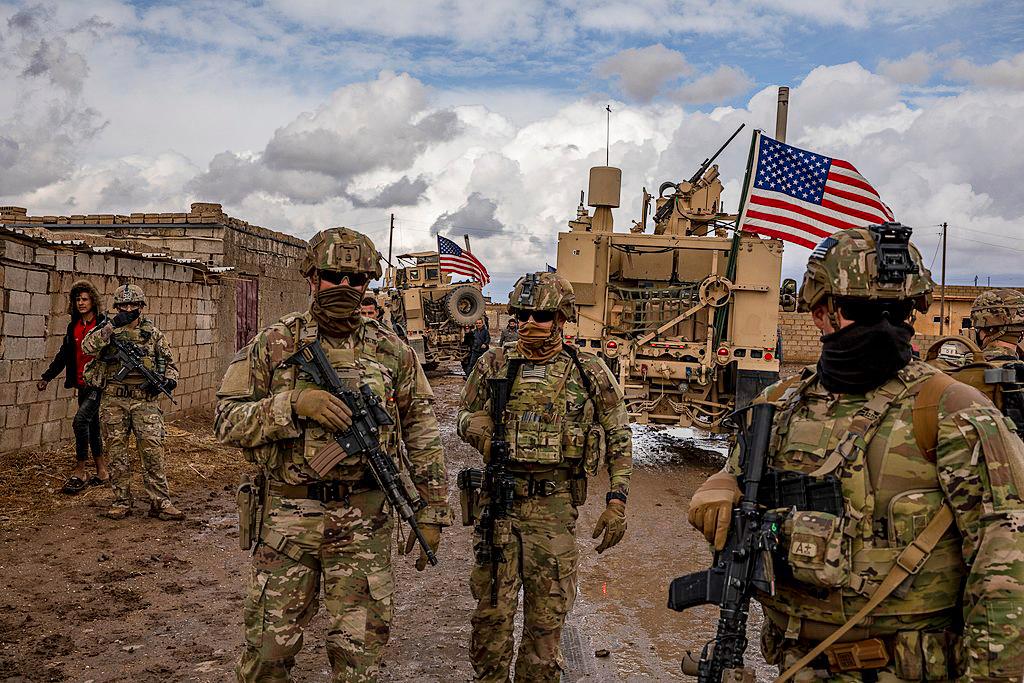
U.S. 1st Battalion, 6th Infantry Regiment troops conduct area reconnaissance in Syria on Feb. 18, 2021. U.S. Army/Spc. Jensen Guillory/Public Domain
The U.S. military presence in Syria is coming under increasing pressure amid mounting volatility in the region and geopolitical realignments.
Following back-to-back attacks on its bases in Syria, the United States vowed on March 24 to protect military assets and personnel deployed there.





